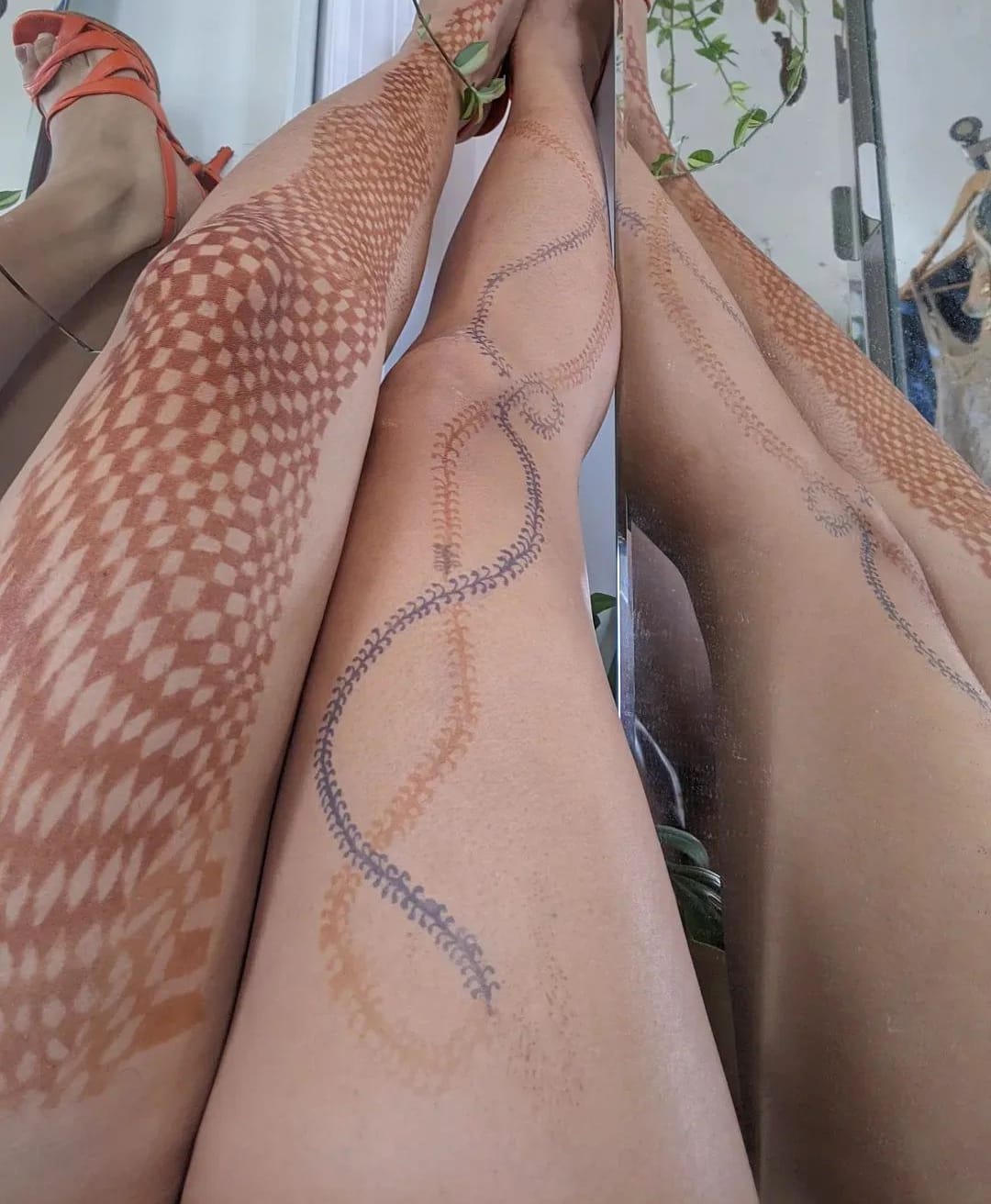A Lovenote to Henna
Contributor
Transient Solidarity
Earlier this year, I was eating a fabulous meal at my friend Minah’s apartment in the East Village. Once we finished eating, our mehndi cones came out. Our friends Kaniz and Ananya were there and we started co-henna-ing on Minah’s giant green couch; drawing on each other’s hands, drawing on our own hands, two of us drawing on one person’s hand…
Henna/Mehndi is a natural dye used to temporarily stain spaces on the body. I started practicing Henna in New York in the midst of the pandemic—when we were all starved of physical proximity with those we love. I had never held the hands of even my closest friends in New York City until I drew on them, which is in stark contrast to my childhood spent in the outskirts of New Delhi, India. Every photo in my adolescent Facebook albums shows our group of friends piling on top of each other, hugging, holding hands…
I looked at those photos often during the pandemic—between COVID and losing my passport on a trip to El Paso, I haven’t been home in years. I came to a realization that somewhere along this time I have officially become a part of the “diaspora”. What does one do with such an awareness? We form rituals to still feel connected to what we call home. To me, one such ritual became practicing mehndi again, and through this practice I found a way to reintroduce platonic touch and affection into my life in New York.
Mehndi isn’t only a gateway to experiencing platonic care…it is romantic…it is a reminder that beauty very literally fades as you watch the deep browns and reds of the stain return back to the color of your skin over the span of a few weeks—a reminder that nothing in the physical world lasts forever. I have given temporary tattoos to temporary lovers, temporary tattoos to create fleeting memorials to my temporary moods and emotions.
Even the process of getting henna’d is sensual, the cold wet paste falls across your skin and tickles your senses. As it dries you have to be acutely aware of your body—of where it has been adorned. You feel time pass as its coldness gradually disappears to match the temperature of your body, as it stiffens and locks your skin into place—all movement has to seize as a part of you is temporarily transformed into a statue.
When you henna your hands, you become precious about the part of your body that allows you to create precious things. You become unproductive and useless to the capitalist agenda. You can no longer be girlbossing, you have to be girl-resting and girl-laying down. Minah, Kaniz, Ananya and I discuss this as we sit on Minah’s green couch. We discuss the instagram creator that made us come to this realization—@abeerakamran—whom I cannot directly quote because her point was made on the most transient of platforms of contemporary discourse: an instagram story. Instagram stories are eye opening because they can be silly and funny yet radical and provocative because of their fleetingness. Much like henna, there is a comfort in knowing that whatever you say (or draw) will disappear in time - what might be more permanent is the feeling it leaves behind… I don’t remember every design I have drawn, but I will never forget the pattern I drew on my hand in both celebration and sadness when I had to miss my cousin’s wedding in India because my passport was stolen. I will remember the designs we drew at Minah’s apartment because that moment is a reminder that though I haven’t been home to Delhi in years, with every ritual touch, New York is slowly becoming home too.
Acknowledgements
Thank you to MInah Ali, Kaniz Fatema, Ananya Malagi, Sanjeev Menon, and Ayqa Khan for having both silly and difficult conversations with me which helped me realize how my Henna practice adds to my life.
